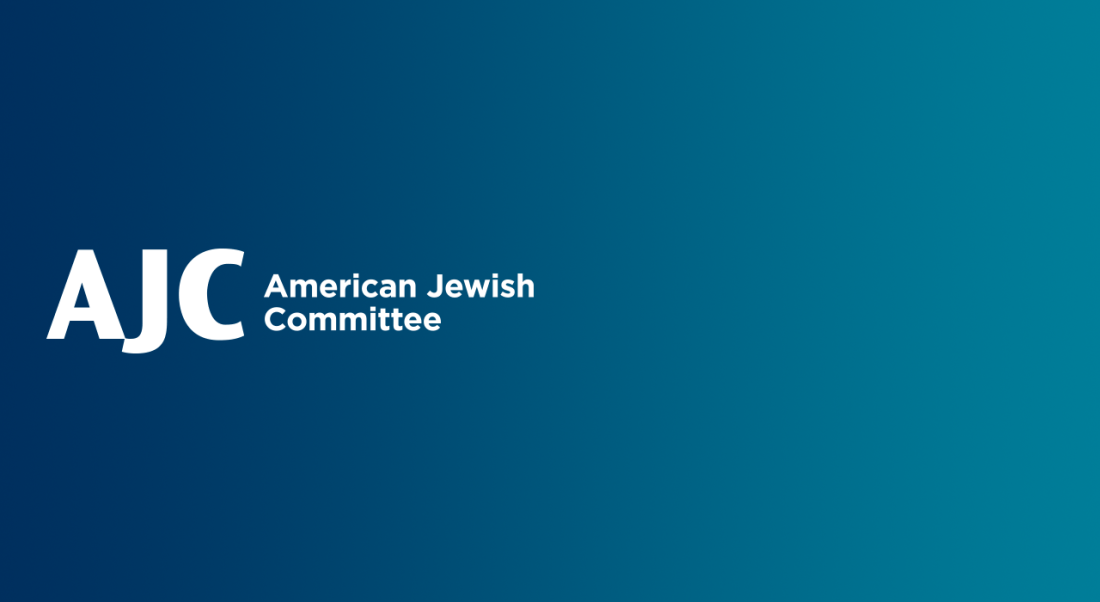The following column appeared in the National Catholic Reporter.
Oct. 28 marks 60 years since the Roman Catholic Church issued Nostra Aetate, the groundbreaking declaration that rejected collective Jewish responsibility in the death of Jesus.
It is no exaggeration to say that Catholic-Jewish relations have been indelibly transformed for the better since Nostra Aetate changed the course of that relationship.
For the better part of two millennia, Christianity portrayed Jews as Christ-killers. That maxim contributed to much of the hate and violence directed at Jews. In contrast, Nostra Aetate told the faithful that Jews must not be “presented as rejected or accursed by God,” and reminded Catholics that Jesus was born, raised, taught and died as a Jew.
Ultimately, in the words of Pope John Paul II, Catholics could and should understand Judaism as “intrinsic” to Catholicism, and see Jews as “dearly beloved brothers,” even “elder brothers.”
Shortly after the elevation of Pope Leo XIV in May, I realized how much John Paul’s words have resonated over the years. On the day of his election, Leo wrote to me and several other Jewish leaders that he would “pledge to continue and strengthen the church’s dialogue and cooperation with the Jewish people in the spirit of the Second Vatican Council’s declaration Nostra Aetate.”
Suffice to say, Leo had many things to contemplate on that momentous day. That he would take time to reach out to representatives of the world’s 15 million Jews as he was about to become the spiritual leader of 1.4 billion Roman Catholics was as unexpected as it was welcome.
And in his first meeting with Jewish and other religious leaders on the day after his inauguration at the Vatican, Leo acknowledged recent Catholic-Jewish contretemps forthrightly and with purpose, when he said to the Jewish people, “Even in these difficult times, marked by conflicts and misunderstandings, it is necessary to continue the momentum of this precious dialogue of ours.”
There remains some strain between our communities in need of repair. Tensions flared during Pope Francis’ final months, particularly when he suggested that accusations against Israel regarding genocide should be investigated.
Francis’ outreach to families and loved ones of those slaughtered when Hamas terrorists attacked Israel on Oct. 7, 2023 — as well as to hostage families and wounded Israeli soldiers — was difficult for the Jewish community to fully appreciate, as he also focused regularly on Gaza with severe judgments against Israel.
For many Jews, this represented more than a philosophical disagreement with the pontiff. There were deeply felt concerns about how Francis’ critical messaging might endanger Jews — especially at a time of surging antisemitism around the globe. There are many who also believe that the Jewish people deserved more understanding and grace in this post-Nostra Aetate era, especially after Israel had suffered the worst attack on Jews since the Holocaust.
I sense that there is not much daylight between Francis and Leo in their respective critical evaluations of Israel’s justified response to the Hamas attacks of Oct. 7. But now, with a ceasefire in Gaza and with hopes for a longer-term agreement that will bring the war to an end, we must look forward. Catholics and Jews will need to speak to each other more about the connection between Jewish identity and Israel, and Catholic theology of the land. Otherwise, Catholic-Jewish relations will remain vulnerable.
There is also one of the great challenges the church has faced in the post-Nostra Aetate era to still contend with: learning how to read and preach the Gospel in a way that does not contribute to anti-Judaism. There was great focus on this in the decades following Nostra Aetate and it must be revisited for this moment.
New Testament passages that could be interpreted as anti-Jewish are still often read in churches without any mitigating commentary to prevent them from being misunderstood as modern day anti-Jewish rhetoric. Without that context, a parishioner could inadvertently apply an ancient negative depiction of Jews to Jews of today.
That doesn’t mean we need a Nostra Aetate 2.0, but perhaps the church could use this 60th anniversary as a gentle reminder that words and how they are spoken really do matter.
Even with these challenges, I remain an optimist, thanks to Nostra Aetate. It helped transform the place of the Jewish people not only in the context of Catholic-Jewish relations, but arguably within the wider world. Whatever challenges the Jewish people confront today, we are not going back to a pre-Nostra Aetate era.
On this 60th anniversary, I think of my grandparents born and raised in and around Bialystok, Poland, at the end of the 19th century, in a world that was dangerous and eventually lethal for many Jews. The idea that their grandson could today speak so warmly and openly with Catholics, including the pope himself, would be to them nothing short of preposterous, but welcome nonetheless.
Yet, neither Catholics nor Jews can let their guard down. Nostra Aetate is a muscle that will shrivel without necessary exercise. That is our shared responsibility as we move forward. I am eternally grateful that Nostra Aetate has allowed us to keep the conversations going and provide the vigilance for them to be sustained. Our world needs this collaboration.
Rabbi Noam Marans is AJC Director of Interreligious Affairs.

